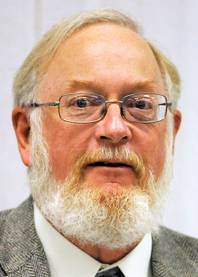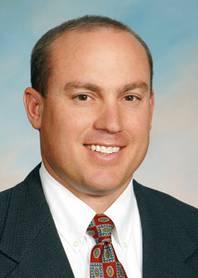Wednesday, Aug. 26, 2009 | 2:05 a.m.
Boulder City
Related stories

Duncan McCoy

Roger Tobler
Boulder City is preparing to tighten its belt even more and will look at charging fees for responding to false alarms and towing vehicles following a DUI arrest, after reviewing new financial forecasts.
The measures are needed because taxes and other revenue in the last quarter of fiscal 2009, which ended June 30, fell short of projections that already had been lowered, City Manager Vicki Mayes told the City Council Tuesday night.
Even after $1 million in cuts were made from December 2008 through the end of the fiscal year, the city’s revenue fell short of covering expenses by $760,000, forcing the city to dip into its ending fund balance, which works as a reserve or savings account.
At the end of June, the ending fund balance was estimated at $2.5 million, well below the $3.2 million the city had planned, Mayes said.
At the current rate of revenue decline, the fund could fall below $1 million this fiscal year, Mayes told the council, a level the city has set as a bare minimum.
The difficulty, Mayes said, is that the city earlier this year made all of the cuts that could be made without affecting services. Nearly all capital expenditures have been postponed. The sole exception is police cars, she said. Police Chief Thomas Finn has said that many of Boulder City’s police cars have more than 100,000 miles on them.
In addition, maintenance and operations of the city’s two golf courses have been converted to contracts, and city workers have agreed to defer half of their annual cost-of-living increases to next year, she said. Top city employees not covered by labor contracts agreed to forgo raises this year.
The city will be able to save another $776,000 this year by not filling nine vacant positions — three police officers, a deputy city clerk, deputy fire chief and several secretaries.
“This is not a hiring freeze, because some positions have to be filled,” Mayes said. Firefighting jobs, for example, cost more to leave open, because the city ends up paying overtime to cover the shifts.
However, Mayes said, she plans to approach the Teamsters Union Local 14, which represents the firefighters and other city employees, to waive a measure in the contract that restricts the Fire Department to using one reserve firefighter per shift.
“If we waive it, they can take it back” when the city’s finances improve, she said. That would give the city some flexibility without the union giving up a contract provision, she said.
In addition, she said, the city will begin to look at instituting fees for responses to false alarms and tows of vehicles after DUI arrests, as well as increasing liquor license fees.
“These are things that are time-consuming for us, and we do not have revenue recovery for them,” she said.
Any such measures would go before the City Council before they would be put into place, she said.
“We tried to do targeted fees, so they are not broad fees that the taxpayers have to bear,” Mayes said.
The council also may be asked to implement new building permit fees, and Mayes said she would be working as the city negotiates more solar leases to accelerate payments.
The council also will have to come up with a new way to set aside $500,000 for the city’s share of the third intake pipeline the Southern Nevada Water Authority is building to draw water from Lake Mead.
The falling lake levels have made a deeper pipeline necessary, the water authority says, and each of the municipalities that uses Lake Mead water has to contribute to the cost.
Boulder City had increased utility rates to set aside $500,000 of its $26 million share. Increased expenses and operating losses on electricity, however, have eaten up that extra money, and with a wholesale rate increase coming from NV Energy, the city is going to have to raise rates again just to keep up, she said.
“This is a perfectly awful year, and it may get worse before it gets better,” Councilman Duncan McCoy said, noting that a possible special legislative session could make it even worse if the state decides to take a bigger share of the consolidated tax revenue from the city.
Mayor Roger Tobler said while the news may be bad in Boulder City, it could be worse.
He said he spoke with Senate Majority Leader Harry Reid, D-Nev., recently, and “he said a lot worse is happening in other areas...We’re doing the best we can in a very difficult situation.”

Join the Discussion:
Check this out for a full explanation of our conversion to the LiveFyre commenting system and instructions on how to sign up for an account.
Full comments policy